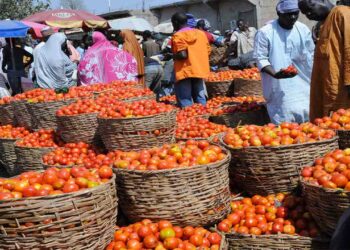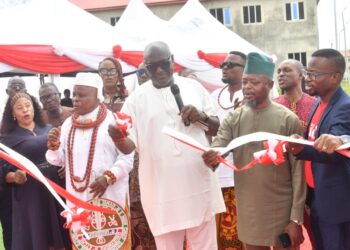Senator Okey Ezea, representing Enugu North district at the National Assembly, has advocated integrating microfinance banks into the disbursement of agricultural and rural credit programmes for improved access to rural finance.
The senator, who was speaking at a forum in Nsukka, Enugu State, to inform his constituents about some of his constituency projects and reveal his legislative agenda, said , the inclusion of microfinance banks in the disbursement of agricultural credits will eliminate the hijack of such funds by politicians and their cronies who prevent real farmers and rural investors from accessing such funds.
He also said the business orientation of MFBs will help prevent repayment failures that have led to the failure of similar programmes in the past.
Citing the example of the Nigerian Agricultural Cooperative and Rural Development Bank (NARDB), which, according to him, has had limited successes as a result of political hijacks and repayment failures, Senator Ezea, recommended that the involvement of MFBs as disbursement agents will ensure proper tracking of disbursements and enforcement of repayments to ensure that the funds achieve the targeted development multipliers.
“The federal government has, in the past, created some special purpose finance vehicles to drive investments in rural agriculture and other enterprises. One of them is the Nigerian Agricultural Cooperative and Rural Development Bank (NARDB). This special bank was designed to provide single-digit credit to rural farmers and businesses. I do not know how effective they have become, but there is evidence that a lot needs to be done to make its impact felt.
“The first thing to do is to redesign the disbursement methods by making the thriving microfinance banks spread all over the country the disbursement channels This will eliminate the situations where such special funds are hijacked by politicians and their cronies. It will also ensure improved repayment frequencies and costs because it is the MFBs that will work out repayment plans failing which they will be excluded from future disbursements,” he said.
He advocated that when this is supported by the provision of appropriate infrastructure such as roads, rural development will spike and result to a boost in the country’s gross domestic product (GDP) by as much as 30 per cent.
“One thing that governments at the federal, state, and local government areas should do is to be deliberate about the provision of infrastructure in the rural areas. Roads are important, so also are agricultural inputs. This was why in my constituency projects, I am paying attention to the construction of rural farm roads, provision of fertilizers, and other items that enable farming.
“Our intervention was chiefly to point towards the direction of what we believe should be the area of greater national priorities, and that is why I believe the government at all tiers should shift attention to rural economic exploitation through the provision of access roads, potable water, and other tangible and intangible amenities,” he said.
These, he stressed, will ensure that productive capital gets to rural entrepreneurs, curtail migration, and “become the nectar that will draw the interest of bigger private sector investors that will be attracted by infrastructure, an availability of opportunities along the value chain, thus changing the economic fortunes of the country in five years or less.
“If government at all levels becomes intentional about this, the 30 per cent increase which I projected will likely be surpassed. Our traditional agriculture resources alone are enough to transform this economy if duly and profitably exploited. If we then exploit the various value chains of the crops we produce, like yams, cocoa, cassava, oil palm, and all the fruits and grains that thrive in many parts of this country, I do not see any reason why we wouldn’t be globally competitive in food production in a few years if duly and profitably exploited,” he concluded.





